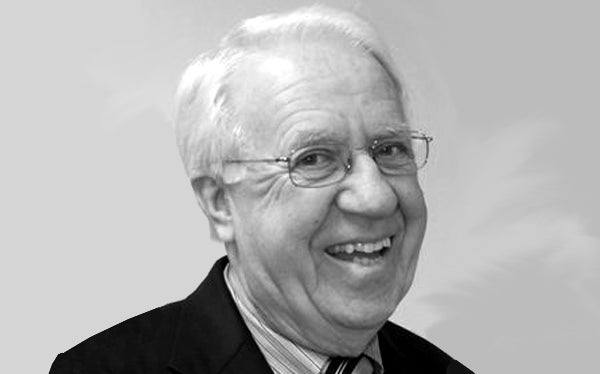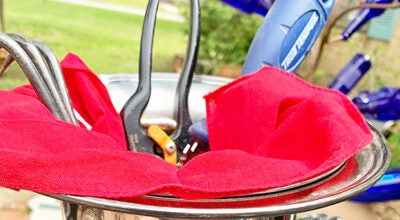OP-ED: THE IDLE AMERICAN: When metal grows weary
Published 12:58 am Wednesday, March 10, 2021
|
Getting your Trinity Audio player ready...
|
What can be done when mere mortals are caught in the crossfire of “stuff-we-don’t-understand-at-all?” And what if our understanding better “fits” bygone days when basic transportation centered on riding horses or depending on them to pull conveyances? There wasn’t an awful lot to understand when either horses or wagons failed us.
Even then, there were probably a few “breakdowns” caused by “metal fatigue,” but the one word “broke” usually sufficed. “Metal fatigue” covers many failures these days; now, there is so much more metal to put pedals to. (I’m surprised that COVID-19 isn’t blamed, at least in part, on metal giving way.)
For most of us–when things break–few details are understood. “Metal fatigue” suffices. We are favored if details are spared.
Two recent happenings–one known around the world and the other limited to our garage–can be attributed to “metal fatigue.” The one warranting big newspaper headlines and providing lead stories for national newscasts occurred in skies over Colorado. A United Airlines flight headed from Denver to Honolulu sustained an engine failure that no doubt had 241 folks contorted into whatever “prayer positions” best suited them. Varying sized “pieces” of the Boeing 777 fell, some of it landing uncomfortably close to people and their possessions.
Upon learning that pilots skillfully returned to Denver International Airport without fatalities or serious injury, folks breathed king-size sighs of relief. Initial findings suggest engine “metal fatigue.”
I need no additional details as may be determined by the National Transportation Safety Board. (This incident reminds us of the “miracle landing” on NYC’s Hudson River a dozen years ago.)
Within days of the Colorado incident, we experienced “metal fatigue” in our garage. Most details will be spared, and thankfully, neighbor B. J. Ford recommended Kevin (“the spring man”) Bailey, who has a garage door repair service in Arlington.
Kevin sent technician Jesus Crisostomo. He arrived promptly, and in a scant hour did much. He cleaned up our mess, fixed up our garage door opener and lightened up our mood. Gone was our mental picture of Brenda pushing the “down” button, a nanosecond before her chilling screams. The garage door seemed to be exploding. Had I pressed the button, there’d have been screams, too, maybe both louder and longer. What happened next included a door half-closed, springs sprung, cables amuck and rollers asunder on the garage floor. Luckily, our car was parked on the driveway, our dog was in the house and Brenda’s fright was brief.
It was the first failure of our almost 20-year-old garage door mechanism. I feared that the repair guy would shake his head and whisper last rites.
Painful experiences have taught me to call on professional help when I am in the “tall weeds” of home repair. (For me, anything beyond changing light bulbs, tending to lawnmower and replacing air filters warrant calling in the experts.)
Conversely, four decades ago–when I thought anything concerning household repair deserved do-it-yourself efforts first–I “fecklessly” took on a similar break-down. Thankfully, a neighbor–perhaps equally “feckless”–agreed to help. The “spring had sprung,” and “we” (okay, specifically “I”) thought it could easily be replaced. I hurried to the parts place to purchase a new spring. Unfortunately, it had no instructions for installation. Somehow, “we” failed, big time. As things quickly went south, the door “wanted” to rise at record speed. My neighbor and I “held it down,” yelling for additional neighborhood assistance. Had there been fewer helpers, the door might have sprung skyward, winding up three houses away, perhaps coming to rest on a roof. A professional was called, saving the day.
The current repair was made at a fair price. I wrote “metal fatigue” on the receipt. That’s all. For no good reason, I thought of that “cylinder-like” metal object that commercial pilots said “whooshed” past their plane over New Mexico the other day. It didn’t seem to be tired at all.
Dr. Newbury is a long-time public speaker and university president who writes weekly. Email: newbury@speakerdoc.com. Phone: 817-447-3872. Facebook: Don Newbury. Twitter: @donnewbury.






